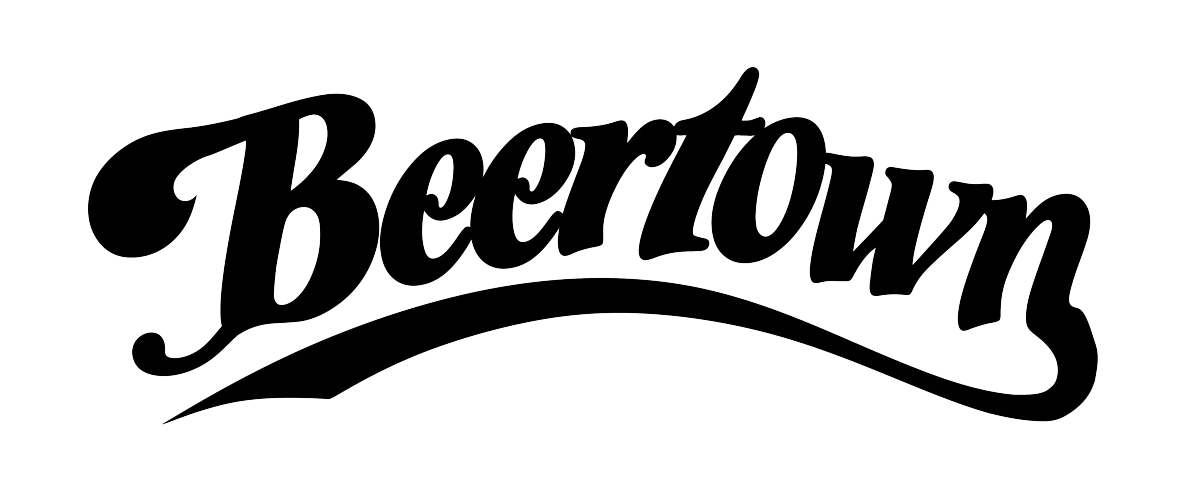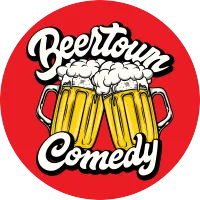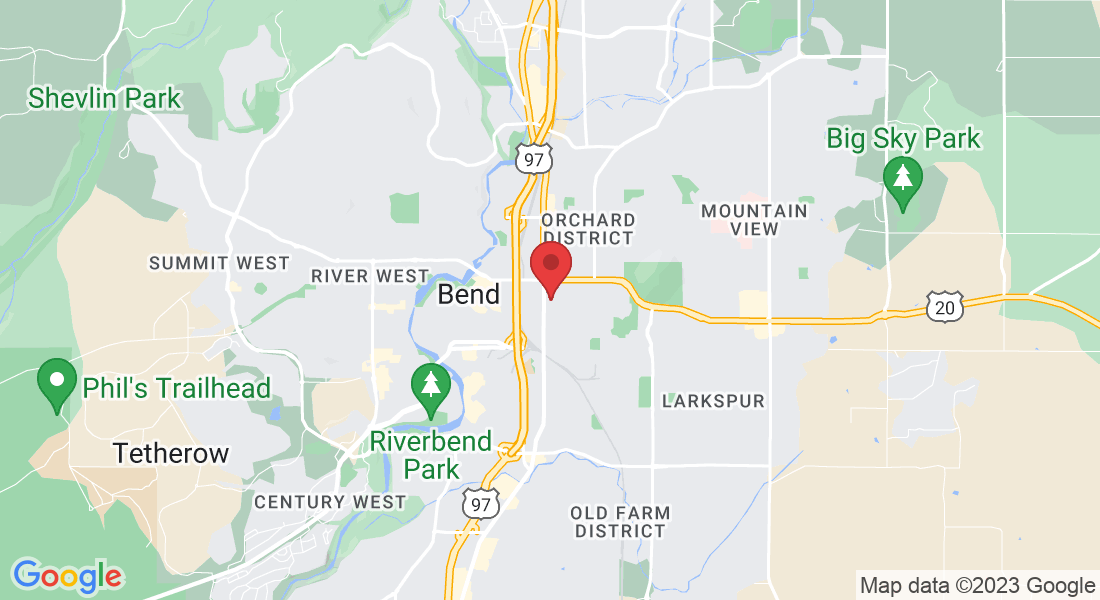featured events
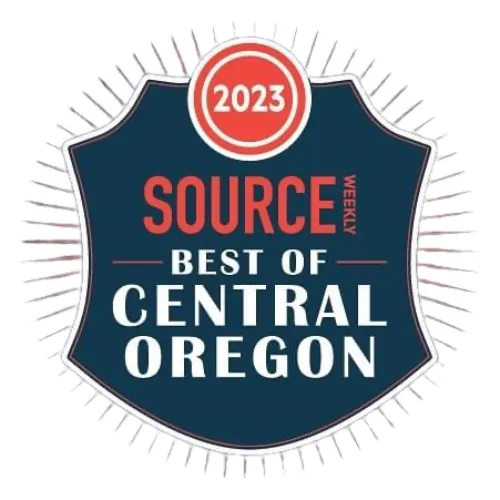

"Best Open Mic"
2023 & 2024
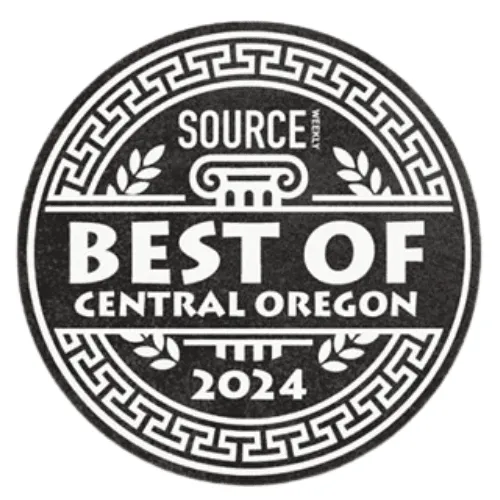

"Best Entertainment"
Platinum Winner

"Best Live Entertainment"
Platinum Winner
MORE THAN JUST A COMEDY CLUB
Discover the best in Bend Comedy right here at Beertown Comedy. We’re redefining the comedy scene in Bend, Oregon, by partnering with diverse venues across Central Oregon to bring you top-notch comedy events. From hilarious open mic nights to performances by the biggest names in comedy, Beertown Comedy is your go-to spot for a night of laughter. Whether you’re looking for things to do in Bend or the best beer in town, Beertown Comedy offers a unique and unforgettable experience. Join us and see why we’re more than just a comedy club in Bend, Oregon.
upcoming shows

Comedian Submissions
Are You a Comedian Looking to Perform?
Beertown Comedy is constantly on the lookout for new Comedic Talent in the NW. We are consistently booking for various venues and are always keeping an eye out for solid Headliners, Features, Openers, and Hosts. If you are interested in working with us and performing on one of our shows please submit your information by clicking below to place yourself on our Beertown Comedy roster.
Trusted Venue Partners

MEDIA & Memories

Explore some of Beertown Comedy's favorite memories from our time producing comedy in the Northwest. Beertown Comedy, formerly known as Comedy & a Cause, has worked with some of the most talented artists in the world and has been producing Comedy Events since they were established in 2017.
Your Source For All Things Comedy
The Beertown Blog


From Open Mics to Headliner: Mapping Your Comedy Career Path
Introduction
Mapping Your Comedy Career Path: A Guide for Aspiring Comedians
Embarking on a career in comedy can seem daunting, but with the right approach and mindset, it can lead to exciting opportunities. This guide provides invaluable insights into navigating the comedy industry, from open mic nights to headlining your own shows. By understanding the steps and strategies involved in mapping your comedy career path, you can increase your chances of success.
To begin your journey, it is crucial to immerse yourself in the comedy scene by attending open mic nights. These events serve as platforms for aspiring comedians to showcase their talents, receive feedback, and network with fellow performers. Building a strong foundation in the comedy community is essential and can open doors to future opportunities.
Once you have gained confidence and experience, it is time to take the next step and secure paid gigs. This is where the real growth begins, as performing in front of paying audiences allows you to refine your material and gauge audience reactions. Developing a unique comedic style and persona is crucial in establishing yourself as a headliner.
As your career progresses, it is important to diversify your performances by seeking out opportunities beyond traditional comedy clubs. This could involve performing at corporate events, festivals, or even online platforms. Embracing different audiences and adapting your material accordingly will help you broaden your reach and attract new fans.
One notable example of a comedian who successfully mapped his comedy career path is Dave Chappelle. Starting from humble beginnings at open mics, Chappelle honed his craft and eventually became a well-known and respected headliner. His ability to connect with diverse audiences and tackle social and political issues with humor has solidified his status as one of the greatest comedians of our time.
The Real Grind: Hard Work and Comedy Success
In the world of comedy, success doesn't come easy. It takes dedication, hard work, and perseverance to make it big. In this section, we'll delve into the real grind of the comedy industry and explore what it truly means to be a comedian on the journey to the top. We'll discuss the meaning of grind in the comedy industry, examining the challenges and hurdles that comedians face. Additionally, we'll highlight the importance of working smart and hard, revealing strategies and insights that can propel aspiring comedians towards their career goals.
The Meaning of Grind in the Comedy Industry
Grind in the comedy industry refers to the unwavering effort and perseverance required to achieve success. It entails overcoming challenges, working tirelessly, and persistently honing one's craft. Within this context, grind is not merely about putting in long hours, but about consistently delivering high-quality performances and continually refining material. It encompasses the dedication and commitment necessary to navigate the competitive nature of the comedy industry.
The comedy grind involves much more than meets the eye. It is not limited to simply performing on stage or writing jokes. It encompasses a multitude of behind-the-scenes activities such as networking, promotion, and constantly seeking new opportunities for growth. Additionally, it requires continuously seeking feedback and analyzing sets to identify areas for improvement.
To fully understand the meaning of grind in the comedy industry, it is essential to recognize that success does not happen overnight. It requires persistent effort over an extended period. Comedians must embrace this reality and commit themselves wholeheartedly to their career path.
By immersing oneself in all aspects of comedy, including expanding one's education, actively listening and analyzing sets, comedians can maximize their growth potential. This continual pursuit of knowledge, self-reflection, and dedication permits comedians to evolve their craft further and overcome obstacles that may arise along their career journey.
The key to success in comedy is working smart and hard, because you can't just tell jokes and expect to get a free punchline.
The Importance of Working Smart and Hard
Working intelligently and efficiently alongside putting in dedicated and diligent effort is crucial in achieving success. Combining smart work with hard work increases the likelihood of attaining goals and aspirations. The significance lies in the ability to strategize and prioritize tasks, making optimal use of resources, time, and energy.
By balancing smart work with hard work, individuals can maximize their productivity while minimizing unnecessary exertion. This approach involves analyzing and understanding the most effective methods to accomplish tasks. Employing strategies such as time management techniques, delegation, and leveraging technology can improve efficiency and reduce the burden of excessive labor.
Moreover, working smart involves setting clear objectives and breaking them down into smaller achievable targets. This helps to maintain focus and prevents burnout or being overwhelmed with an insurmountable workload. It encourages proactive thinking, problem-solving skills, adaptability, and continuous learning.
In essence, navigating a successful career requires a combination of both intelligence-driven actions and persistent efforts. By harnessing the power of intelligent decision-making processes alongside determined exertion of energy, individuals can optimize their chances of progress and achievement.
Pro Tip: Continually reassess your approach to work by seeking feedback from mentors or peers. Adjust your strategies based on their insights to enhance your effectiveness further.
The Path to Success: Getting on Stage and Writing
When it comes to pursuing a comedy career, two key components pave the way to success: getting on stage and honing your joke writing skills. These crucial aspects are what separate aspiring comedians from those who rise to become headliners.
In this section, we will delve into the significance of stage time and how it can shape your comedic abilities. We'll also explore the art of writing and editing jokes, uncovering the strategies and techniques that can elevate your comedic prowess. So, let's dive into the world of comedy and uncover the secrets to making audiences laugh night after night.
The Importance of Stage Time
In the fast-paced world of comedy, the significance of stage time cannot be overstated. Time spent on stage is an invaluable opportunity for comedians to refine their craft and connect with audiences. It allows them to test new material, experiment with delivery techniques, and gauge audience reactions. The importance of stage time lies in its ability to provide vital feedback and growth opportunities that are essential for a comedian's development.
Stage time is not only about performing in front of an audience; it is also about building resilience and adapting to different crowds. Each performance offers a chance to learn from successes and failures, fine-tune timing and delivery, and develop the confidence needed to thrive in the comedy industry.
Furthermore, stage time allows comedians to cultivate their unique comedic voice by honing their material through repetition and refinement. In comedy, repetition is key as it helps comedians understand what works best for them and their style. By continuously performing on stage, comedians can identify strengths, weaknesses, and areas that require improvement.
A pro tip for aspiring comedians is to actively seek out opportunities for stage time beyond open mic nights. Joining comedy clubs or attending workshops provides access to structured environments where performers can receive feedback from experienced professionals in the field. By expanding one's network within the comedy community, discovering new venues for performances becomes possible.
In summary, the importance of stage time cannot be underestimated in a comedian's career path. It serves as a platform for growth, skill development, audience connection, resilience building, and self-discovery. Embracing this crucial aspect of stand-up comedy will undoubtedly pave the way for success in both short-term performances and long-term career aspirations.
The twists and turns of writing and editing jokes are like a comedy obstacle course, but with enough wit and precision, you'll conquer each punchline like a comedy ninja.
The Art of Writing and Editing Jokes
The Creative Process Behind Crafting and Polishing Jokes
Creating comedic masterpieces involves a unique blend of artistry and precision, where the craft of writing and editing jokes takes center stage. Humorists meticulously sculpt their material, chiseling away unnecessary elements while honing in on the core essence of laughter. Carefully selecting words, timing, and delivery to elicit maximum amusement is an art form that comedians dedicate themselves to perfecting.
As comedians delve into the intricacies of joke crafting, they embark on a journey of self-expression. They distill their thoughts into concise and clever punchlines, weaving together words that ignite hilarity within audiences. This process involves extensive wordplay, brainstorming sessions, and refining narratives until the comedic impact is maximized. The ability to consistently generate laughter is a testament to the dexterity and skill possessed by humorists.
Beyond the initial creation phase lies the equally important task of editing jokes. Comedians meticulously analyze their material after performances, seeking opportunities for improvement or expansion. Through this critical evaluation process, they identify weak points in timing or delivery and modify their jokes accordingly. Editing also involves experimenting with different phrasing or structures to enhance comedic effect.
To truly excel in the art of writing and editing jokes, comedians must continuously push themselves out of their comfort zones. They actively seek feedback from peers, mentors, or even audience members to gain valuable insights into how their material can be further enhanced. Adaptability and an openness to constructive criticism are essential traits for any aspiring stand-up comedian.
In this fiercely competitive industry, where every laugh matters, mastering the art of writing and editing jokes sets individuals apart from the rest. By tirelessly refining their material through continuous practice and seeking innovative approaches to comedy, comedians can build a repertoire guaranteed to leave audiences roaring with laughter.
Embrace the opportunity to harness your comedic potential by dedicating time and effort towards nurturing your skills in writing and editing jokes. Your dedication to this craft will cultivate a unique voice and style that captures the hearts and funny bones of audiences worldwide. Remember, the art of writing and editing jokes is a never-ending source of growth and possibility in your comedy career.
Don't be fooled by the laughs on stage, comedy success takes a lot of behind-the-scenes sweat and tears.
The Hard Work You Don't See: Beyond Open Mics
As I navigate the world of comedy, I've come to realize that there's much more to a career in comedy than just performing at open mics. In this section, I want to shed light on the often unseen aspects of a comedian's journey.
First, let's break down the illusion of hard work and examine the behind-the-scenes efforts that go into crafting a successful comedy career.
The Illusion of Hard Work
In reality, success in comedy requires not only hard work but also smart work. It's about finding the balance between honing your craft on stage and constantly improving your material through writing and editing jokes. Simply putting in countless hours on stage without taking time to refine your material can lead to stagnation rather than growth.
Moreover, beyond the open mic nights and performances that people see, there is a whole world of behind-the-scenes work that goes unnoticed. Comedians are constantly analyzing their sets, listening intently to audience reactions, and making adjustments accordingly. This continuous improvement is crucial for growth and staying relevant in such a competitive industry.
It is important for aspiring comedians to understand that true success comes from not just grinding away mindlessly, but also from expanding their comedy education and learning from experienced comedians. By seeking out new knowledge and different perspectives, comedians can avoid falling into traps and maximize their growth potential.
The Importance of Continuous Improvement
Continuous improvement plays a vital role in the pursuit of excellence and growth. By consistently refining our skills, knowledge, and performance, we can elevate ourselves to higher levels of achievement. Embracing a mindset of continuous improvement allows us to stay proactive and adaptable in an ever-changing world. It enables us to identify areas for development, learn from our mistakes, and seek out new opportunities for self-improvement. Through this constant process of refinement, we can continually push ourselves to achieve greater success and reach our full potential.
In the comedy industry, the importance of continuous improvement cannot be overstated. Comedians must constantly refine their craft through practice, experimentation, and feedback. By analyzing their performances and audiences' reactions, comedians can identify what works well and what needs adjustment. This ongoing process allows them to fine-tune jokes, delivery techniques, timing, and stage presence to maximize laughter and audience engagement.
Moreover, continuous improvement is essential for navigating the various challenges that arise in the comedy career path. It helps comedians stay motivated and persevere through tough times by focusing on growth opportunities rather than setbacks. By constantly seeking new experiences, learning from other comedians' performances or attending comedy workshops, comedians can expand their comedic toolbox and bring fresh material to their acts.
Avoiding Traps and Maximizing Growth
When it comes to navigating the comedy industry, avoiding common traps and maximizing personal growth are essential. In this section, we'll explore two key strategies for success: expanding your comedy education and honing your listening and analyzing skills.
By broadening your knowledge of comedy techniques, industry trends, and comedic history, you can gain a competitive edge. Additionally, developing the ability to objectively critique and learn from your own performances is crucial in elevating your comedy to headliner level.
Expanding Your Comedy Education
Professional Growth in the Comedy Industry
In the dynamic world of comedy, expanding your comedy education is essential to ensuring professional growth. Aspiring comics must continuously seek opportunities to learn and develop their skills, staying up-to-date with the latest trends and techniques. This involves immersing oneself in the comedy scene, attending workshops and seminars, and networking with experienced performers. By actively engaging in educational activities, comedians can acquire invaluable insights and knowledge that will enhance their performances.
To expand your comedy education further, consider seeking mentorship from seasoned professionals who can provide guidance tailored to your unique style and goals. Establishing a mentor-mentee relationship can offer personalized feedback that enables you to refine your comedic craftsmanship. Additionally, engaging with other emerging talent through online forums or social media platforms allows for collaboration and exchange of ideas, opening new avenues for growth.
The excitement of expanding your comedy education lies not only in formal channels like workshops but also in exploring alternative sources of inspiration. Listening to podcasts hosted by successful comedians or reading books written by industry veterans provides access to diverse perspectives on stand-up comedy. This exposure can broaden your understanding of different comedic styles, unlock fresh approaches to writing jokes, and challenge you to push beyond your comfort zone.
Listening and Analyzing Your Sets
Listening and analyzing your sets is a crucial aspect of honing your comedy skills. By closely examining and reflecting on your performances, you can identify strengths and areas for improvement, allowing you to refine your material and delivery.
Pay attention to audience reactions: Listen for laughter, applause, or lack thereof during your sets. This will give you valuable feedback on what jokes are working and what may need adjustment.
Analyze timing and delivery: Take note of the pacing, pauses, and inflection in your jokes. Consider how different variations impact the audience's response and adjust accordingly.
Evaluate joke structure: Analyze the setup and punchline of each joke. Is the setup clear? Does the punchline have a strong comedic impact? Assessing these elements will help you fine-tune the effectiveness of your material.
Take notes immediately after performances: Capture your thoughts while they are fresh in your mind. Record any ideas for improvement or adjustments that come to you during or directly after a set.
Seek feedback from peers or mentors: Share recordings of your performances with trusted individuals who can provide objective opinions. Collect their insights to gain different perspectives on how to enhance your act.
Embrace continuous learning: Never stop seeking opportunities to improve. Attend workshops, seminars, or festivals where experienced comedians share insights and offer guidance.
By listening attentively to audience reactions, analyzing various elements of your sets, taking notes after performances, seeking feedback from others, and embracing continuous learning opportunities, you can effectively enhance your comedy career path. These practices will allow you to refine your material, connect better with audiences, and ultimately elevate your comedic skills.
Conclusion: Embracing the Comedy Career Grind
Embracing the Comedy Career Grind: A Professional Perspective
Mapping your comedy career path involves a series of steps and challenges that aspiring comedians must navigate. Embracing the comedy career grind requires dedication, perseverance, and a willingness to put in the necessary work. It starts with open mic nights, where aspiring comedians can test their material and gain confidence on stage. From there, the journey progresses to showcases and club gigs, where comedians have the opportunity to hone their craft and build a following. The comedy career grind demands continuous improvement and adaptability, as comedians must stay relevant and connect with their audience.
Throughout this process, comedians face rejection and setbacks, but it is crucial to embrace these challenges as learning opportunities. Failure is an integral part of the comedy career grind, and successful comedians understand the importance of persistence. By continuously writing new material, seeking feedback, and refining their performances, comedians can gradually climb the comedy career ladder.
One unique aspect of the comedy career grind is the camaraderie within the comedy community. Comedians often collaborate, share advice, and support each other in navigating the industry. This network provides valuable connections and opportunities for growth. By establishing relationships with fellow comedians, industry professionals, and bookers, aspiring comedians can open doors to bigger stages and better opportunities.
In the world of comedy, many successful comedians have faced their fair share of struggles before reaching the pinnacle of their careers. Some have endured years of rejection, poverty, and uncertainty before finally achieving their breakthrough. It is important to acknowledge and appreciate the resilience and determination required to succeed in the comedy career grind.
Five Facts About "From Open Mics to Headliner: Mapping Your Comedy Career Path":
✅ Many aspiring stand-up comics move to cities with thriving comedy scenes to pursue their dreams.
✅ There is no one path to success in the comedy industry, as every successful comedian has a unique journey.
✅ The concept of "grinding" in comedy refers to working hard and putting in the time to improve as a comedian.
✅ Simply performing at open mics is not enough to develop as a comedian; writing, editing, and analyzing performances are also crucial elements.
✅ The path to success in comedy involves getting on stage as much as possible, writing consistently, and continuously refining material through performance and analysis.
FAQs
Question 1: What does it mean to "grind" in the open mic scene?
Answer: "Grinding" in the open mic scene refers to working hard and putting in the time to improve as a stand-up comic. It involves actively seeking opportunities to perform on stage and consistently refining one's material and performance.
Question 2: Is working hard the only key to success in the comedy industry?
Answer: Working hard is essential, but it is not the only factor for success. Along with putting in the time, it is also important to work smart. This involves seeking opportunities to write, edit, and perform, as well as analyzing other successful comedians' work and constantly seeking improvement.
Question 3: How can recording sets help in comedy development?
Answer: Recording sets is a crucial aspect of comedy development. By listening to their performances, comedians can identify areas for improvement, refine their jokes, and make necessary adjustments to their delivery and timing. It allows them to objectively analyze their own work and enhance their comedic skills.
Question 4: What are some effective ways to generate comedic material?
Answer: Generating comedic material can vary from comedian to comedian. Some prefer pen to paper writing, while others find verbalizing their thoughts through a voice recorder or by talking to themselves more effective. Additionally, forming a writer's group with fellow comics can also be a valuable way to generate ideas and receive feedback.
Question 5: How can a comedian avoid stagnation in their material?
Answer: To avoid stagnation, comedians should constantly strive to improve their material by trying new things. This can include adjusting their word order, adding tags to their jokes, switching up the order of their set, or experimenting with different comedic structures. It's essential to avoid repeating material verbatim without making necessary edits or changes.
Question 6: Why is it important for aspiring comedians to study and analyze comedy?
Answer: Studying and analyzing comedy is crucial for aspiring comedians as it provides valuable insights into successful comedic techniques, joke structures, and storytelling skills. By watching and analyzing comedy, comedians can learn from established performers, broaden their comedic repertoire, and develop a better understanding of what works for their own performances.
Beertown Comedy
Where The Jokes Are Always on Tap
Copyright Beertown Comedy 2025 -- All Rights Reserved -- Designed by Local Legends
